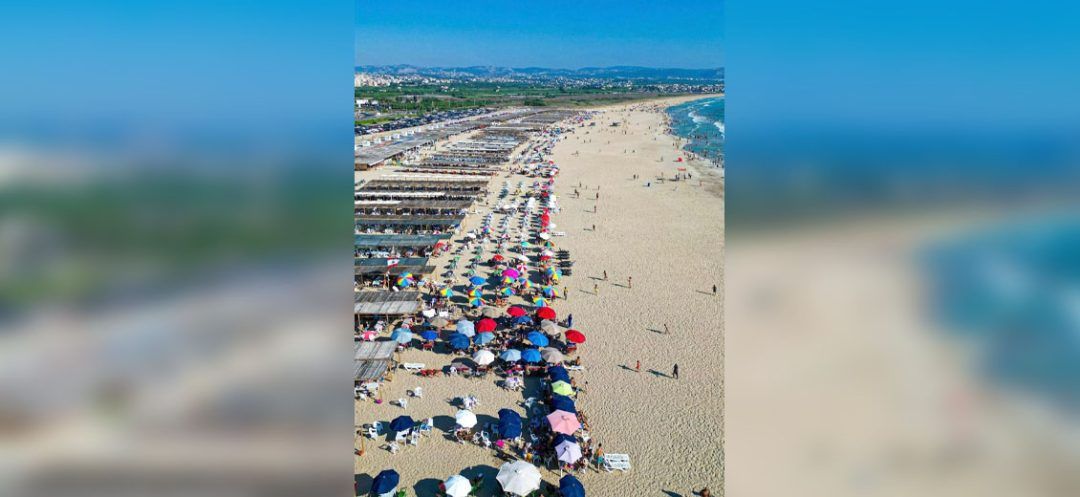
©Photo : @livelovetyre @go.deep_lebanon
Despite a troubled daily life, the Lebanese dance, celebrate, and sunbathe. How can we explain this paradox? What psychological mechanisms are at play behind this apparent carefreeness? Does this dissociation actually mask a very real suffering? Let’s try to dissect this behavior through psychoanalysis.
Regularly, national and especially international research results tell us about the very worrying general condition of the Lebanese on several fronts:
• Physical violence and abuse are on the rise, particularly within families.
• Feelings of distress and anxiety are omnipresent, suicidal thoughts and the suicide rate are increasing, as well as cancer rates, with causes being psychological, biological, and ecological.
• Lebanese records continue to accumulate, such as ranking second in the world for the number of unhappy and sad citizens.
• The socio-economic situation is disastrous: 82% of Lebanese are at the poverty threshold, 354,000 are on the brink of famine, and nine out of ten families are unable to meet their essential needs.
And yet! While in the South, war carries out its destructive and deadly work, in Beirut and elsewhere, people dance until the early morning. The media report daily on shows whose expensive tickets sell out quickly, festivals that are fully booked, hotels and restaurants turning away customers, some being booked weeks in advance, coastal beaches being taken by storm, dollars circulating abundantly, displays of luxurious spending, and joyous drinking parties flooding social media, etc.
 Photo : @livelovetyre @ramirizk
Photo : @livelovetyre @ramirizkIn this article, I propose that you join me in a very risky attempt: to try to find a psychoanalytic meaning to this picture full of contradictions and complexity. But beware of any generalizations, Lebanon is as complex as its inhabitants, whose social categories present very wide heterogeneities on the socio-cultural, economic, confessional, and even identity levels. Moreover, it is only a small percentage of Lebanese who can afford festive freedoms in the current dramatic circumstances, while the majority of the population is engaged in an exhausting struggle for survival.
Our discussion thus concerns the duality observed in the behavior of a certain number of Lebanese. However, it should be noted that this duality is not recent and concerns a large spectrum of the population. It is deeply rooted in the tumultuous history of our country, which has experienced a long series of conflicts, from the political and security insurrection of 1958, through a devastating civil war prolonged by a long cold war, followed by many other political, economic, and security upheavals, not to mention of course the apocalyptic explosion of the Beirut port in 2020 and its devastating effects on the bodies, minds, and property of thousands of fellow citizens.
The chronic instability amidst which the Lebanese continue their existence has shaped an adaptive reactivity, controlling their psyche and behavior, forcing them to conceal a state of permanent tension. The constant proximity to danger has led them to invent solutions that have helped them develop forms of habituation in order to continue a life to which they want to give a semblance of normality. One could say that over time, they have developed a way of living in permanent uncertainty, somewhat like tightrope walkers advancing without looking at the void below for fear of its fascinating effect. They have wanted to continue celebrating life, in their own way, despite the specter of dangers and war.
They have thus developed defense mechanisms against the anxiety generated by a practically permanent traumatogenic environment. Despite their boomerang effect, the mechanisms of repression, avoidance, and denial have become unconscious strategies, allowing a certain control of psychosomatic tensions and insidious anxieties, resulting in a semblance of normality in a chaotic, insecure environment with no hope of protection from a totally corrupt and failed state.
Another mechanism at work also helps to understand this characteristic duality of many Lebanese: it is that of psychic splitting that underlies it. This mechanism occurs, by a cleavage effect, between certain threatening impulses and those that oppose them, in order to allow them to continue an existence as close to their habits as possible. In the current volatile and fragile context, this allows them to persuade themselves of a utopian emotional stability.
This dissociation at work also unconsciously aims to ignore the generational transmission of traumas caused by wars that marked parents and grandparents. From time to time, sufferings and desires for revenge arise, unhealed scars of a still painful past, which one seeks to quickly get rid of to return to the present of a life of oblivion and pleasures.
Nowhere is this ambivalence more striking than in Tyre. There, just a stone’s throw from the war zone, while the bombings resound a few small kilometers away, people sunbathe peacefully on the beaches, with regulars coming from all over. Behind this appearance of individual claim to a life of idleness lies, in the psychic depths, a much darker reality, made of silent anxiety and constant vigilance. On the beaches of Tyre, the Lebanese live, unbeknownst to them, this profound duality between the anxieties of death and the desire to enjoy the sun and life.
But this apparent carefreeness, while offering an outlet for anxieties, can nonetheless have harmful effects by masking a very real psychological suffering, as evidenced by the general increase in psychosomatic symptoms as well as the use of anxiolytics and antidepressants. According to a recent report from the Executive Magazine, one in four Lebanese suffers from mental disorders.
Behind these behaviors of apparent normality, something forced is apparent: the greater the state of insecurity and danger threatening from all sides, the greater the need to deny it and persuade oneself of one’s own invulnerability. This relentless adaptation actually hides the opposite: a vulnerability, a fragility that calls for increased support in terms of mental health.
For, if the Lebanese have learned to dance on a razor’s edge, to juggle contradictions, this feat comes at a psychological and somatic cost that should not be neglected.
Read more




Comments